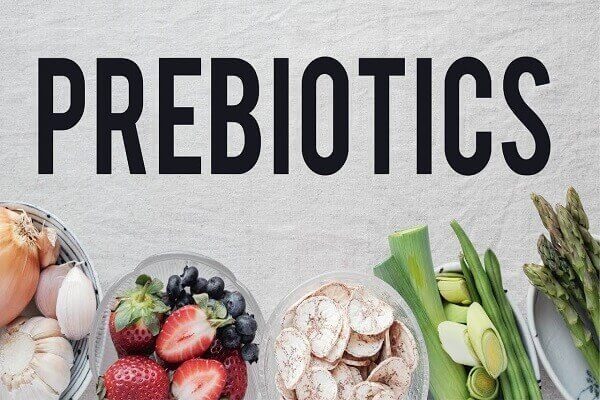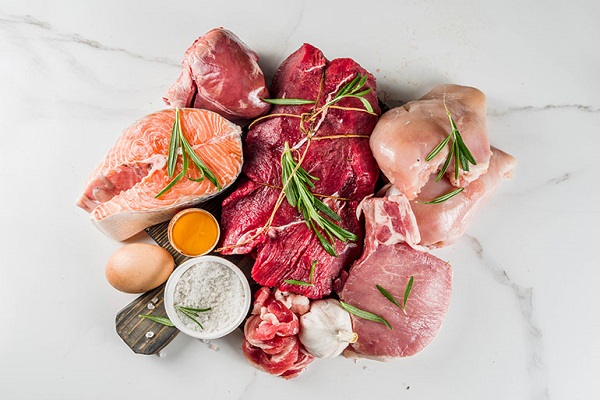Prebiotics are an incredibly important part of your digestive system, both in terms of your health and the overall quality of life you enjoy. While many people know what probiotics do for their bodies, prebiotics is just as important to the digestion process and overall health but don’t get talked about as often. If you’re interested in learning more about prebiotics and which foods you can eat to improve your gut health, read on to learn more.

1) Gut bacteria
Studies have shown that prebiotics can help people with conditions like diabetes, obesity, and gastrointestinal diseases. The most common prebiotic foods are vegetables, fruits, and grains. The most common types of prebiotic supplements are inulin, oligofructose, and fructooligosaccharides.
2) Weight loss
1) A study in the European Journal of Clinical Nutrition found that taking a probiotic supplement with food helped people lose weight and improve their body composition. 2) The bacteria in your gut can help you lose weight by reducing your appetite and cravings for unhealthy foods. 3) Fructooligosaccharides, the type of prebiotic found in bananas, onions, garlic, and asparagus, are fermented by the bacteria in your gut to produce short-chain fatty acids which increase feelings of fullness.
3) Proper digestion
Proper digestion is essential for a healthy life. The foods you eat need to be broken down into sugars and amino acids in order to provide your body with the nutrients it needs. One way that your gut aids in this process is by producing a gel-like substance called a prebiotic. Not all prebiotics are the same, but they can have many health benefits.
4) Lower cholesterol levels
Some studies have shown that prebiotic fiber may help lower cholesterol levels. One study found that consuming oats, a source of soluble fiber, lowered total and LDL-cholesterol levels in participants’ blood. Another study found a difference in cholesterol levels between those who ate oat-enriched cereal or oat bran and those who didn’t. The study also found that the higher the dose consumed, the greater the decrease in total and LDL cholesterol was.
5) Reduced risk of type 2 diabetes
A 2012 study in the journal Gastroenterology found that pre- and probiotics reduced the risk for type 2 diabetes by 40%. Participants who took a specific type of probiotic, called Lactobacillus rhamnosus GG (LGG), had lower glucose levels and were less likely to develop prediabetes.
6) Improved immune system function
Research has shown that prebiotic consumption may improve immune system function. In a study, healthy people aged 18-45 years were given either a placebo or the prebiotic oligofructose-enriched inulin (OFI) for three weeks. The OFI group had an increase in secretory immunoglobulin A (sIgA), while both groups showed improved cell-mediated immunity. The OFI group also had increased fecal bifidobacteria levels, which is associated with better gut health and reduced inflammation.
7) Better control blood sugar levels
Studies show that eating prebiotic foods can help you control your blood sugar levels. This is because they slow down the digestion process which in turn slows down the release of sugar into your system. For this reason, they are especially important for those who have diabetes or are at risk for developing diabetes.
8) Prevention against colon cancer
Prebiotics can help prevent colon cancer by changing the way your gut microbiota (the bacteria living in your intestines) metabolizes food. The prebiotic fiber helps to create a more diverse bacterial population, which is associated with a lower risk for colon cancer. So it’s important to eat foods rich in prebiotic fiber if you want to stay healthy!
9) Reduces depression and anxiety
According to a study conducted by the University of Toronto, prebiotic fiber may reduce depression and anxiety. Participants in the study were given either inulin or wheat bran, with those who received inulin reporting fewer symptoms. Inulin is found in many plant-based foods such as leeks, onions, artichokes, and asparagus.
10) Stronger bones
It’s no secret that our bones are made up of a mineral called calcium. Calcium is important because it helps bones grow and stay strong. One way to make sure you’re getting enough calcium is by eating prebiotic foods that contain it, like bok choy, kale, and broccoli.
Prebiotic foods can help with bone health in a few different ways. For one thing, prebiotic fibers can bind with the calcium you eat so that your body has an easier time absorbing it.







